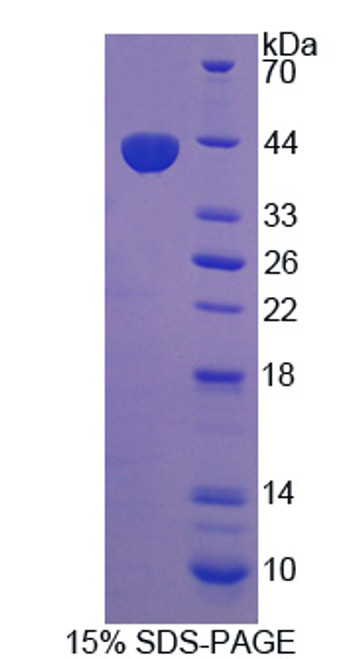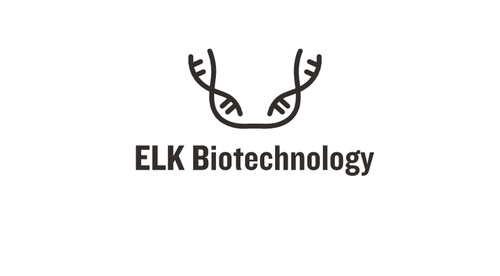Product Description
Human Proprotein convertase subtilisin/kexin type 5 (PCSK5) ELISA Kit | AE28350HU | Abebio
Species Reactivity: Human (Homo sapiens)
Abbreviation: PCSK5
Alternative Name: RP11-422N19.4; PC5; PC6; PC6A; SPC6; prohormone convertase 5|proprotein convertase PC5|protease PC6|subtilisin/kexin-like protease PC5
Application: ELISA
Range: 0.156-10 ng/mL
Sensitivity: 0.054 ng/mL
Intra-Assay: ≤4.5%
Inter-Assay: ≤7.4%
Recovery: 0, 94
Sample Type: Serum, Plasma, Other biological fluids
Detection Method: Sandwich
Analysis Method : Quantitive
Test Principale: This assay employs a two-site sandwich ELISA to quantitate PCSK5 in samples. An antibody specific for PCSK5 has been pre-coated onto a microplate. Standards and samples are pipetted into the wells and anyPCSK5 present is bound by the immobilized antibody. After removing any unbound substances, a biotin-conjugated antibody specific for PCSK5 is added to the wells. After washing, Streptavidin conjugated Horseradish Peroxidase (HRP) is added to the wells. Following a wash to remove any unbound avidin-enzyme reagent, a substrate solution is added to the wells and color develops in proportion to the amount of PCSK5 bound in the initial step. The color development is stopped and the intensity of the color is measured.
Product Overview: Proprotein convertase subtilisin/kexin type 5 is an enzyme belongs to the subtilisin-like proprotein convertase family. The members of this family are proprotein convertases that process latent precursor proteins into their biologically active products. This encoded protein mediates posttranslational endoproteolytic processing for several integrin alpha subunits. It is thought to process prorenin, pro-membrane type-1 matrix metalloproteinase and HIV-1 glycoprotein gp160. Two alternatively spliced transcripts are described for this gene but only one has its full length nature known. Expressed in T-lymphocytes. Likely to represent a widespread endoprotease activity within the constitutive and regulated secretory pathway. Capable of cleavage at the RX (K/R) R consensus motif.
Stability: The stability of ELISA kit is determined by the loss rate of activity. The loss rate of this kit is less than 5% within the expiration date under appropriate storage condition. The loss rate was determined by accelerated thermal degradation test. Keep the kit at 37°C for 4 and 7 days, and compare O.D.values of the kit kept at 37°C with that of at recommended temperature. (referring from China Biological Products Standard, which was calculated by the Arrhenius equation. For ELISA kit, 4 days storage at 37°C can be considered as 6 months at 2 - 8°C, which means 7 days at 37°C equaling 12 months at 2 - 8°C) .
 Euro
Euro
 USD
USD
 British Pound
British Pound
 NULL
NULL








